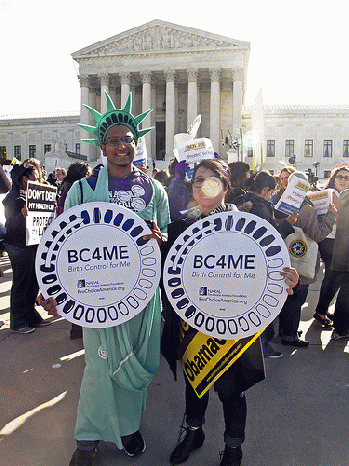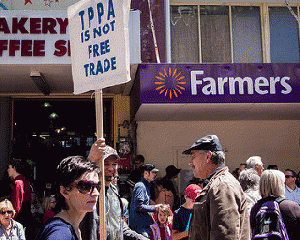
|
SHARE |
|
OpEd News Member for 634 week(s) and 3 day(s)
81 Articles, 0 Quick Links, 126 Comments, 0 Diaries, 0 Polls
Articles Listed By Date
List By Popularity
List By Popularity
Page 1 of 5 First Last Back Next 2 3 4 5 View All
(8 comments) SHARE  Wednesday, May 16, 2018
Wednesday, May 16, 2018
Science skepticism runs amok Science writ large is based on evidence whether it's about the cosmos or about economics. Ridding government parlance of science belies this truth with consequential impact. Propose tariffs might have the same negative effect on world trade as the 1930s Smoot-Hawley Tariff Act had.
Science skepticism runs amok Science writ large is based on evidence whether it's about the cosmos or about economics. Ridding government parlance of science belies this truth with consequential impact. Propose tariffs might have the same negative effect on world trade as the 1930s Smoot-Hawley Tariff Act had.
(5 comments) SHARE  Saturday, January 6, 2018
Saturday, January 6, 2018
Trump tax cuts and the economy The Trump tax cuts lower tax rates for the people at the top and for corporations. The administration hopes the economy will grow 3 percent and corporations will repatriate trillions of dollars held abroad. The repatriation in earnings will lead to more jobs. It's late to raise taxes to over 50 percent as a strategy for incentivizing corporations to pay higher wages and to invest in their companies.
Trump tax cuts and the economy The Trump tax cuts lower tax rates for the people at the top and for corporations. The administration hopes the economy will grow 3 percent and corporations will repatriate trillions of dollars held abroad. The repatriation in earnings will lead to more jobs. It's late to raise taxes to over 50 percent as a strategy for incentivizing corporations to pay higher wages and to invest in their companies.
(4 comments) SHARE  Saturday, October 14, 2017
Saturday, October 14, 2017
On Corporate Tax Reduction Tax reform to repatriate $2.5 trillion held by corporations abroad fails to recognize that corporations pay 18 percent on average in taxes. Reducing the rate to 20 percent is still two percentage points over the average. That difference might not be enough to change current behavior. Higher tax rates give businesses the binary choice of paying more to the government or raising wages and spending on capital investment.
On Corporate Tax Reduction Tax reform to repatriate $2.5 trillion held by corporations abroad fails to recognize that corporations pay 18 percent on average in taxes. Reducing the rate to 20 percent is still two percentage points over the average. That difference might not be enough to change current behavior. Higher tax rates give businesses the binary choice of paying more to the government or raising wages and spending on capital investment.
(2 comments) SHARE  Tuesday, August 15, 2017
Tuesday, August 15, 2017
The Economy has been Doing Well In the past eight year, the U.S. economy has been growing and the stock market rising. Restricting immigration could raise wages; but a fence costly. The wall will cost billions. Tax cuts can stimulate the economy. Repealing the ACA isn't the way to pay for it. Decreasing regulations might increase business hiring. But repealing Dodd-Frank might cause another great recession.
The Economy has been Doing Well In the past eight year, the U.S. economy has been growing and the stock market rising. Restricting immigration could raise wages; but a fence costly. The wall will cost billions. Tax cuts can stimulate the economy. Repealing the ACA isn't the way to pay for it. Decreasing regulations might increase business hiring. But repealing Dodd-Frank might cause another great recession.
(5 comments) SHARE  Sunday, May 28, 2017
Sunday, May 28, 2017
Trump's tax cuts will allegedly grow the economy and will be paid for in part by repealing ACA. It will remove 20 taxes Trump's tax cuts will allegedly grow the economy and will be paid for in part by repealing ACA. It will remove 20 taxes enacted by Obama. Ninety percent of the benefits will go to 90 percent of the wealthiest families and low and middle-income families will take the hit. Low income and middle-income families have a higher propensity to save than wealthy families.
Trump's tax cuts will allegedly grow the economy and will be paid for in part by repealing ACA. It will remove 20 taxes Trump's tax cuts will allegedly grow the economy and will be paid for in part by repealing ACA. It will remove 20 taxes enacted by Obama. Ninety percent of the benefits will go to 90 percent of the wealthiest families and low and middle-income families will take the hit. Low income and middle-income families have a higher propensity to save than wealthy families.

(6 comments) SHARE  Monday, April 17, 2017
Monday, April 17, 2017
The ACA Lives: fix it not kill it ACA is still alive despite all the efforts to repeal it and use the savings for tax cuts for the rich. It has insured millions of Americans. Repeal could lead to people dying. A fix should target the problem directly as subsidies do. But the individual mandate insures more people. Block grants to states will not accomplish the same thing.
The ACA Lives: fix it not kill it ACA is still alive despite all the efforts to repeal it and use the savings for tax cuts for the rich. It has insured millions of Americans. Repeal could lead to people dying. A fix should target the problem directly as subsidies do. But the individual mandate insures more people. Block grants to states will not accomplish the same thing.

(2 comments) SHARE  Thursday, March 23, 2017
Thursday, March 23, 2017
Creating Labor Shortages: The Wall and NAFTA The wall, whose cost varies considerable, will cause Mexico GDP to decline, although it will not bankrupt to country. NAFTA has fostered greater trade between the U.S. and Mexico, but has not led to a convergence of income between the two countries. The wall will create labor shortages and higher wages in the U.S. The U.S. economy is in good shape: its problem is distributional.
Creating Labor Shortages: The Wall and NAFTA The wall, whose cost varies considerable, will cause Mexico GDP to decline, although it will not bankrupt to country. NAFTA has fostered greater trade between the U.S. and Mexico, but has not led to a convergence of income between the two countries. The wall will create labor shortages and higher wages in the U.S. The U.S. economy is in good shape: its problem is distributional.

(1 comments) SHARE  Friday, January 20, 2017
Friday, January 20, 2017
Government is not a business Who should rule the country? Smart men? The Constitution says a person who is natural citizen, age 35, with 14 years of residency can be president. Being a businessman is no more qualifying than being a community organizer. Businesspersons are motivated by profit, but government is about maximizing the general welfare. And being a businessman does not guarantee success in government.
Government is not a business Who should rule the country? Smart men? The Constitution says a person who is natural citizen, age 35, with 14 years of residency can be president. Being a businessman is no more qualifying than being a community organizer. Businesspersons are motivated by profit, but government is about maximizing the general welfare. And being a businessman does not guarantee success in government.
(4 comments) SHARE  Thursday, December 22, 2016
Thursday, December 22, 2016
The Voters Want Trump's Economic Plan Trump (and Clinton) wanted to increase the rate of growth of the US economy and propose to do that through tax cuts. Trump expects a four percent growth rate by cutting rates on the rich. Hillary wanted to grow the middle class through tax cuts on the middle class, and a higher minimum wage, among other things.
The Voters Want Trump's Economic Plan Trump (and Clinton) wanted to increase the rate of growth of the US economy and propose to do that through tax cuts. Trump expects a four percent growth rate by cutting rates on the rich. Hillary wanted to grow the middle class through tax cuts on the middle class, and a higher minimum wage, among other things.
(1 comments) SHARE  Wednesday, November 23, 2016
Wednesday, November 23, 2016
Trump and Economics As president-elect of the US, Mr. Trump seems willing to growth the US economy following a Keynesian prescription: lower taxes and higher government spending. He might be able to carry through on this because Congress is controlled by members of his party. But he runs the risk of increasing the deficit (and the debt) without reducing income inequality.
Trump and Economics As president-elect of the US, Mr. Trump seems willing to growth the US economy following a Keynesian prescription: lower taxes and higher government spending. He might be able to carry through on this because Congress is controlled by members of his party. But he runs the risk of increasing the deficit (and the debt) without reducing income inequality.
(1 comments) SHARE  Monday, November 7, 2016
Monday, November 7, 2016
The Brexit Effect Brexit might have some implications for US/British trade. The drop in the value of the pound relative to the dollar makes British goods American tourists and importers. While Mr. Trump on the campaign trade appears to have a more inward-looking posture of trade, Hillary Clinton might have been more open to free trade before, but now she is opposed to TPP.
The Brexit Effect Brexit might have some implications for US/British trade. The drop in the value of the pound relative to the dollar makes British goods American tourists and importers. While Mr. Trump on the campaign trade appears to have a more inward-looking posture of trade, Hillary Clinton might have been more open to free trade before, but now she is opposed to TPP.
(2 comments) SHARE  Tuesday, August 30, 2016
Tuesday, August 30, 2016
Inversion, Investment and Economic Performance Notion that US corporate tax rates are too high and thus discourage investment and economic growth. But many big US companies pay zero taxes. Proposals to lower the tax rate would change nothing--zero taxes trumps any positive tax rate. Fact, investment and income are positively correlated. Hence, more investment will be forthcoming when income growth.
Inversion, Investment and Economic Performance Notion that US corporate tax rates are too high and thus discourage investment and economic growth. But many big US companies pay zero taxes. Proposals to lower the tax rate would change nothing--zero taxes trumps any positive tax rate. Fact, investment and income are positively correlated. Hence, more investment will be forthcoming when income growth.
(1 comments) SHARE  Sunday, July 31, 2016
Sunday, July 31, 2016
Economic Nationalism is Not the Answer Economic nationalism is gaining momentum in American politics become of the perception that trade agreements with international partners have worked against us. Free trade is different from outsourcing or foreign direct investments. Inward-looking policies and austerity practices might defeat rather than address the concerns of American voters.
Economic Nationalism is Not the Answer Economic nationalism is gaining momentum in American politics become of the perception that trade agreements with international partners have worked against us. Free trade is different from outsourcing or foreign direct investments. Inward-looking policies and austerity practices might defeat rather than address the concerns of American voters.
(5 comments) SHARE  Saturday, June 4, 2016
Saturday, June 4, 2016
The National Debt is not a Monetary Problem Mr. Trump has an easy solution to the huge U.S. debt--print money, raise interest rates, and buy back the debt at a discount. The Fed is an independent organization that changes the money supply based on economic conditions--not political ones. Without a congressional change in the Fed's mandate, Mr. Trump's debt solution scheme may not be doable.
The National Debt is not a Monetary Problem Mr. Trump has an easy solution to the huge U.S. debt--print money, raise interest rates, and buy back the debt at a discount. The Fed is an independent organization that changes the money supply based on economic conditions--not political ones. Without a congressional change in the Fed's mandate, Mr. Trump's debt solution scheme may not be doable.
(4 comments) SHARE  Monday, April 25, 2016
Monday, April 25, 2016
The political conversation about taxes Some presidential candidates favor a flat tax and others a progressive tax as the avenue to faster economic growth. The evidence seems to favor a progressive tax. Investment in a market environment is determined by its profitability, not the tax rate.
The political conversation about taxes Some presidential candidates favor a flat tax and others a progressive tax as the avenue to faster economic growth. The evidence seems to favor a progressive tax. Investment in a market environment is determined by its profitability, not the tax rate.

(5 comments) SHARE  Friday, March 18, 2016
Friday, March 18, 2016
Trade Agreements versus Trade Liberalization Free trade makes everyone better off because of comparative advantage. Agreements like NAFTA and TPP appear to be the realization of free trade arguments. However, U.S. companies move abroad to avoid environmental regulations and taxes; and to take advantage of lower wages in host countries. These good are then sold in the U.S. market. Wealthy businesspersons benefit but workers lose their jobs.
Trade Agreements versus Trade Liberalization Free trade makes everyone better off because of comparative advantage. Agreements like NAFTA and TPP appear to be the realization of free trade arguments. However, U.S. companies move abroad to avoid environmental regulations and taxes; and to take advantage of lower wages in host countries. These good are then sold in the U.S. market. Wealthy businesspersons benefit but workers lose their jobs.
(1 comments) SHARE  Tuesday, February 16, 2016
Tuesday, February 16, 2016
Business practices that hurt the country The quest for profits leads to activities that go against the best interest of the country. The business model results in companies moving abroad to avoid U.S. taxes, for cheap labor, and lax environmental protection laws. This represents not only a loss of a physical productive structure but also a rise in US unemployment.
Business practices that hurt the country The quest for profits leads to activities that go against the best interest of the country. The business model results in companies moving abroad to avoid U.S. taxes, for cheap labor, and lax environmental protection laws. This represents not only a loss of a physical productive structure but also a rise in US unemployment.
(6 comments) SHARE  Tuesday, November 24, 2015
Tuesday, November 24, 2015
End the Decade of Low Interest Rates Ms. Yellen might raise interest rates in December. Retired people with interest bearing assets would benefit from this development. However, Wall Street and bankers have been the main beneficiaries of the protracted low interest rates. And there is an unfounded charge that President Obama will force Ms. Yellen to keep interest rates low until after the presidential elections. This charge ignores the independence of the Fed.
End the Decade of Low Interest Rates Ms. Yellen might raise interest rates in December. Retired people with interest bearing assets would benefit from this development. However, Wall Street and bankers have been the main beneficiaries of the protracted low interest rates. And there is an unfounded charge that President Obama will force Ms. Yellen to keep interest rates low until after the presidential elections. This charge ignores the independence of the Fed.
(6 comments) SHARE  Wednesday, October 28, 2015
Wednesday, October 28, 2015
Stiglitz on Inequality: "The Great Divide" The Great Divide's main theme is income inequality: its causes and consequences. One cause is the structure of the tax system, while another is the ability of the 1 percent to get the government it wants abetted by rulings of SCOTUS. Inequality reduces aggregate demand, slows economic growth and hurts everyone, including the 1 percent.
Stiglitz on Inequality: "The Great Divide" The Great Divide's main theme is income inequality: its causes and consequences. One cause is the structure of the tax system, while another is the ability of the 1 percent to get the government it wants abetted by rulings of SCOTUS. Inequality reduces aggregate demand, slows economic growth and hurts everyone, including the 1 percent.

(2 comments) SHARE  Wednesday, October 14, 2015
Wednesday, October 14, 2015
Public vs Private Practices The rush to privatization is about market superiority. Efforts are afoot to privatize schools, prisons, etc., ignoring the fact that the efficiency of the market is exaggerated. Recently, there have been some salient examples of market failures due to human frailty: Volkswagen, Johnson and Johnson, and Martin Shkreli (of Turing Pharmaceuticals). There's no virtue of the market greater than practitioners give it.
Public vs Private Practices The rush to privatization is about market superiority. Efforts are afoot to privatize schools, prisons, etc., ignoring the fact that the efficiency of the market is exaggerated. Recently, there have been some salient examples of market failures due to human frailty: Volkswagen, Johnson and Johnson, and Martin Shkreli (of Turing Pharmaceuticals). There's no virtue of the market greater than practitioners give it.

